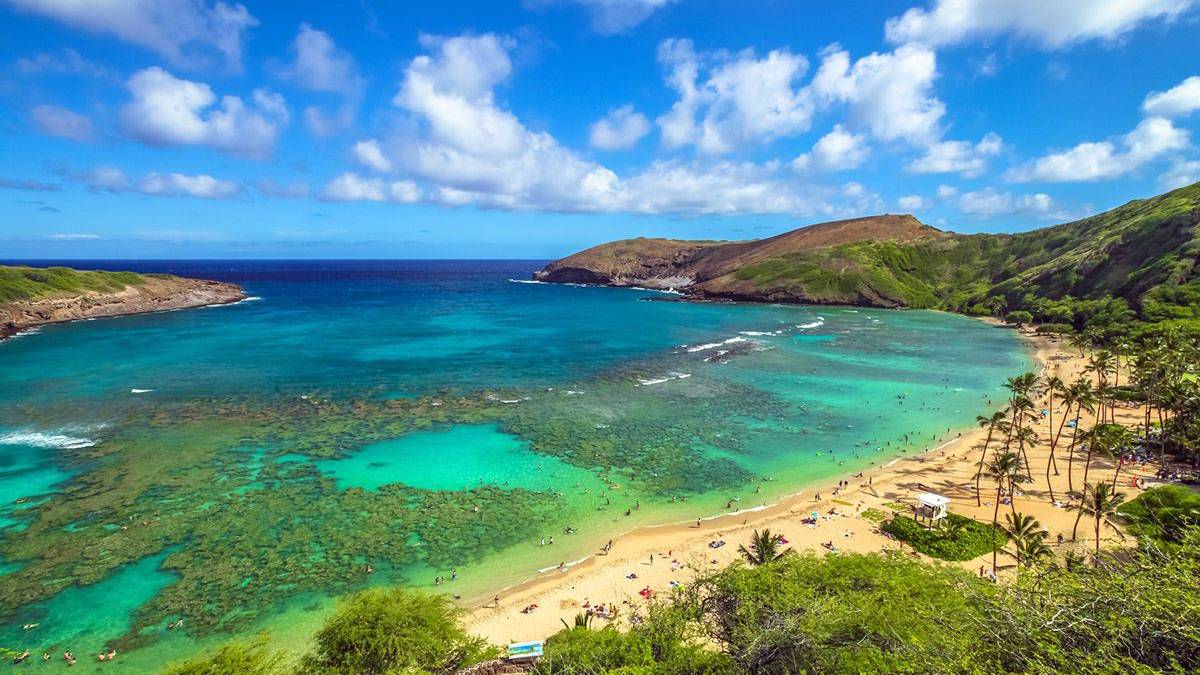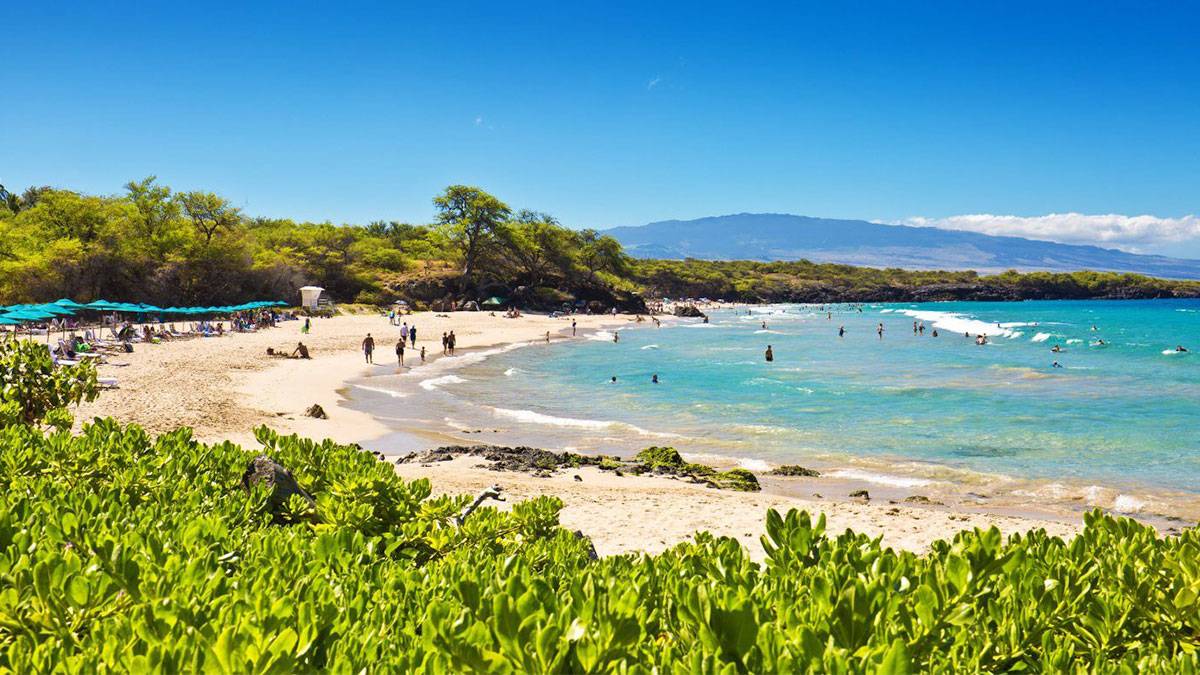Eco-Friendly Sunscreen: A Deeper Dive into Ocean-Friendly Formulas

Protect coral reefs and your skin at the same time! Reef safe sunscreens are better all-around. It’s time for a glow-up.
Planning a trip to Hawaii? It’s time to not only protect your skin from the sun but also ensure you’re protecting the delicate coral reefs. As travelers become more eco-conscious, reef-safe sunscreen has become a top priority for those who want to enjoy the beautiful beaches and marine life responsibly.
Understanding why reef-safe sunscreen matters and how it can help preserve coral reefs for future generations will make you a more mindful traveler.
Why Reef-Safe Sunscreen Matters
Hawaii is famous for its crystal-clear waters and vibrant coral reefs. However, research has shown that certain sunscreen chemicals are damaging these vital marine ecosystems. Coral reefs are essential to ocean biodiversity, acting as nurseries for many marine species and protecting coastlines from erosion. However, common sunscreen ingredients like oxybenzone and octinoxate contribute to coral bleaching, which weakens or kills coral reefs.
In response, Hawaii became the first U.S. state to pass legislation banning sunscreens containing harmful chemicals, effective since 2021. That’s where reef-safe sunscreen comes in. By switching to ocean-friendly sunscreen products, you’re not only safeguarding your skin from harmful UV rays but also contributing to the health of the ocean.
Harmful Chemicals in Sunscreen
The chemicals found in most traditional sunscreens are effective at protecting your skin from the sun, but they can be toxic to marine life. Oxybenzone and octinoxate, which are common in non-reef-safe sunscreens, have been shown to cause coral bleaching. This process disrupts coral’s symbiotic relationship with algae, eventually leading to coral death.
When millions of tourists apply these chemical-laden sunscreens and jump into the ocean, the damage can be exponential. These chemicals linger in the water and can negatively impact marine life even in small doses.
While it might seem like a small change, choosing Hawaii-approved sunscreen brands that are free from these harmful ingredients can help protect the fragile coral reef ecosystem.
What Makes Sunscreen “Reef-Safe”
Reef-safe sunscreens use mineral-based active ingredients like zinc oxide and titanium dioxide, which are non-toxic to coral reefs. These broad-spectrum sunscreens form a physical barrier on the skin, reflecting harmful UV rays without being absorbed into the water. To ensure you’re using the best reef friendly sunscreen, look for products labeled “reef-safe,” “Hawaii-safe sunscreen,” or “coral reef safe.”
When reviewing the sunscreen ingredients, avoid products containing:
- Oxybenzone
- Octinoxate
- Parabens
- Nanoparticles (look for non-nano zinc oxide)
- PABA (para-aminobenzoic acid)
Mineral sunscreens typically come in SPF 30 or SPF 50 options, offering plenty of sun protection while remaining kind to the oceans. Zinc oxide and titanium dioxide are considered the safest active ingredients for your skin and the environment.
Eager to know what’s the best sunscreen for Hawaii tropics? Read on for our top picks.

Top 5 Reef-Safe Eco-Friendly Sunscreens
Now that you know why reef-safe sunscreen is important, here are five best reef safe sunscreens to keep you and the reefs protected on your Hawaiian adventure.
1. Thinksport SPF 50+ Mineral Sunscreen
Whether you’re surfing the waves off Key West or Oahu, this Hawaii-approved sunscreen is non-toxic and free of harmful chemicals. It offers SPF 50 protection and is water-resistant for up to 80 minutes. With its non-nano zinc oxide formula, it’s safe for coral reefs and provides excellent coverage.
2. Sun Bum Mineral SPF 50 Sunscreen
Known for its lightweight, non-greasy formula, Sun Bum’s Mineral Sunscreen is both reef-friendly and hypoallergenic, making it perfect for those with sensitive skin. It’s one of the most popular reef-safe sunscreen brands in Hawaii.
3. Blue Lizard Sensitive Mineral Sunscreen
A trusted name in environmental sunscreen, Blue Lizard offers a gentle formula that’s perfect for sensitive skin. With SPF 30, this non-toxic sunscreen is water-resistant and contains non-nano zinc oxide, ensuring your reef protection.
4. Thrive Natural Care Body Mineral Sunscreen
This sustainable skincare brand combines effective broad-spectrum protection with a silky, smooth texture. With SPF 50 and 80 minutes of water resistance, it’s perfect for long days at the beach.
5. Maui Surfer Honey All Natural Sunscreen SPF 30
Designed specifically for water sports, this sunscreen is ideal for surfing, snorkeling, or swimming. It’s packed with natural ingredients like aloe vera and jojoba oil, ensuring both your skin and the reef are cared for.
Additional Tips for Protecting Coral Reefs (And Your Skin!)
Besides choosing reef-safe sunscreen, there are other ways you can help preserve the coral reefs during your Hawaiian vacation:
- Cover-up: Wearing UV-protective clothing, hats, and sunglasses reduces the amount of sunscreen you need, minimizing your environmental impact.
- Seek shade: Staying in the shade, especially during peak UV hours (10 a.m. to 4 p.m.), helps protect your skin and limits your sunscreen use.
- Reapply correctly: Follow the instructions on your sunscreen label for reapplication, especially after swimming or sweating.
- Avoid touching coral: Whether you’re snorkeling or diving, keep a safe distance from coral reefs. Touching them can cause damage, and stepping on them can kill delicate corals.
By following these simple steps, you can protect both your skin and Hawaii’s precious marine environments.
Hawaii Reef Safe Sunscreen FAQs
Which Reef-Safe Sunscreen Brands Are the Best?
Some of the best reef-safe sunscreen brands include Thinksport, Sun Bum Mineral, Blue Lizard, and Babo Botanicals. These sunscreens use non-nano zinc oxide or titanium dioxide, providing effective sun protection while being safe for the reefs. If you're headed to Hawaii, look for sunscreens that are Hawaii safe sunscreen, as they follow the state's strict regulations for protecting coral reefs
Is There a Hawaii-Approved Sunscreen List?
Yes, reef safe sunscreen Hawaii options are free from harmful chemicals like oxybenzone and octinoxate. The list highlights sunscreens that use mineral-based ingredients such as zinc oxide or titanium dioxide, which are safer for marine life. To ensure you’re using a Hawaii safe sunscreen, look for products labeled as "reef-safe" or consult local guidelines to confirm your sunscreen complies with the state's regulations.
Ready to be a Reef-Friendly Traveler?
Hawaii’s stunning reefs and marine life are integral parts of its natural beauty, and it’s up to us to protect them. Choosing a reef-safe sunscreen is a small but impactful way to contribute to the health of these ecosystems. As more travelers become aware of the environmental impact of harmful chemicals in traditional sunscreens, the shift toward eco-friendly sunscreen options has never been more accessible or important.
Before you pack your bags, make sure to pick up a bottle of Hawaii-approved sunscreen from one of the reef-safe sunscreen brands mentioned above. And be sure to check out Tripster’s Hawaii travel guide. Whether you’re looking for insider tips on the best beaches, top attractions, or where to grab local eats, their guide will help you plan your perfect trip.
Plus, take advantage of these discount tickets, special deals, and hotel packages to save on your vacation. From thrilling activities like snorkeling and luaus to serene resort stays, Tripster has everything you need to make your trip to Hawaii both memorable and budget-friendly.
PS: These are affiliate products, so if you choose to buy, Tripster might earn a commission.
